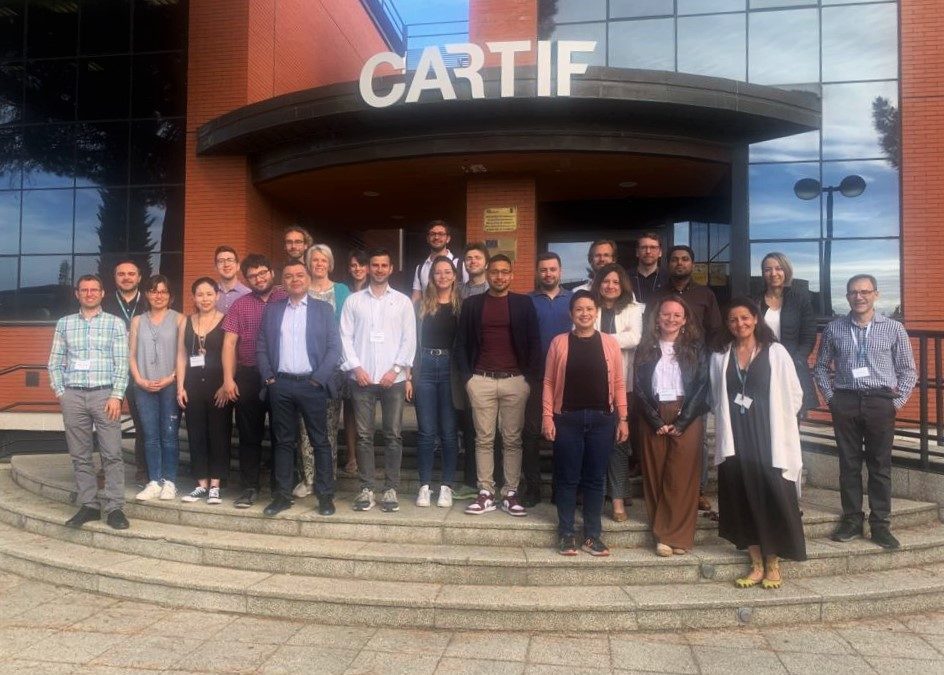CATCO2NVERS, the project funded under the European Union’s Horizon 2020 research and innovation programme based on technologies for the conversion of CO2 into high added value products, has held its 5th follow-up meeting in a face-to-face event at CARTIF’s facilities with the aim of reviewing and analysing the results obtained during the last 6 months of work.
This meeting, which took place on 8 and 9 May at the Boecillo Technology Park (Valladolid), served as a meeting point for all the partners, who were able to review the results obtained and plan the next steps to be taken for the following period. Taking advantage of their stay, a guided tour of the centre’s facilities was organised to show them the work areas of one of the consortium’s partners.
The purpose of CATCO2NVERS is to reduce greenhouse gas (GHG) emissions from bio-based industry by developing five innovative and integrated technologies based on three catalytic processes (electrochemical, enzymatic and thermochemical). The aim of the project is to transform waste CO2 from industries into value-added chemical products: glyoxylic acid, lactic acid, furan dicarboxylic methyl ester, cyclic carbonated fatty acid methyl esters and biomethanol, with application in the chemical and cosmetic industries and plastics industries.
CARTIF’s role in this project is based on the thermocatalytic conversion of CO2 to methanol. The team involved in the project is working on the development of new catalysts for the hydrogenation of CO2 to methanol, on the evaluation of the catalytic activity and characterisation of the catalysts, and on the development of the process and scalability.
The project is composed of a total of fifteen partners from eight different European countries: CARTIF, Funditec, Wageningen University & Research, CSIC, University of Twente, Avantium, PERSEO Biotechnology, HYSYTECH, Nova-Institut, DA*NA, Sustainable Innovations, Alchemia-Nova GmbH, AVA Biochem, Evyap, Johnson Matthey. They all work together for 48 months from the start of the project, contributing to convert the captured CO2 into value-added chemicals where they are produced and used in a close-to-production cycle, instead of releasing CO2 into the atmosphere.
